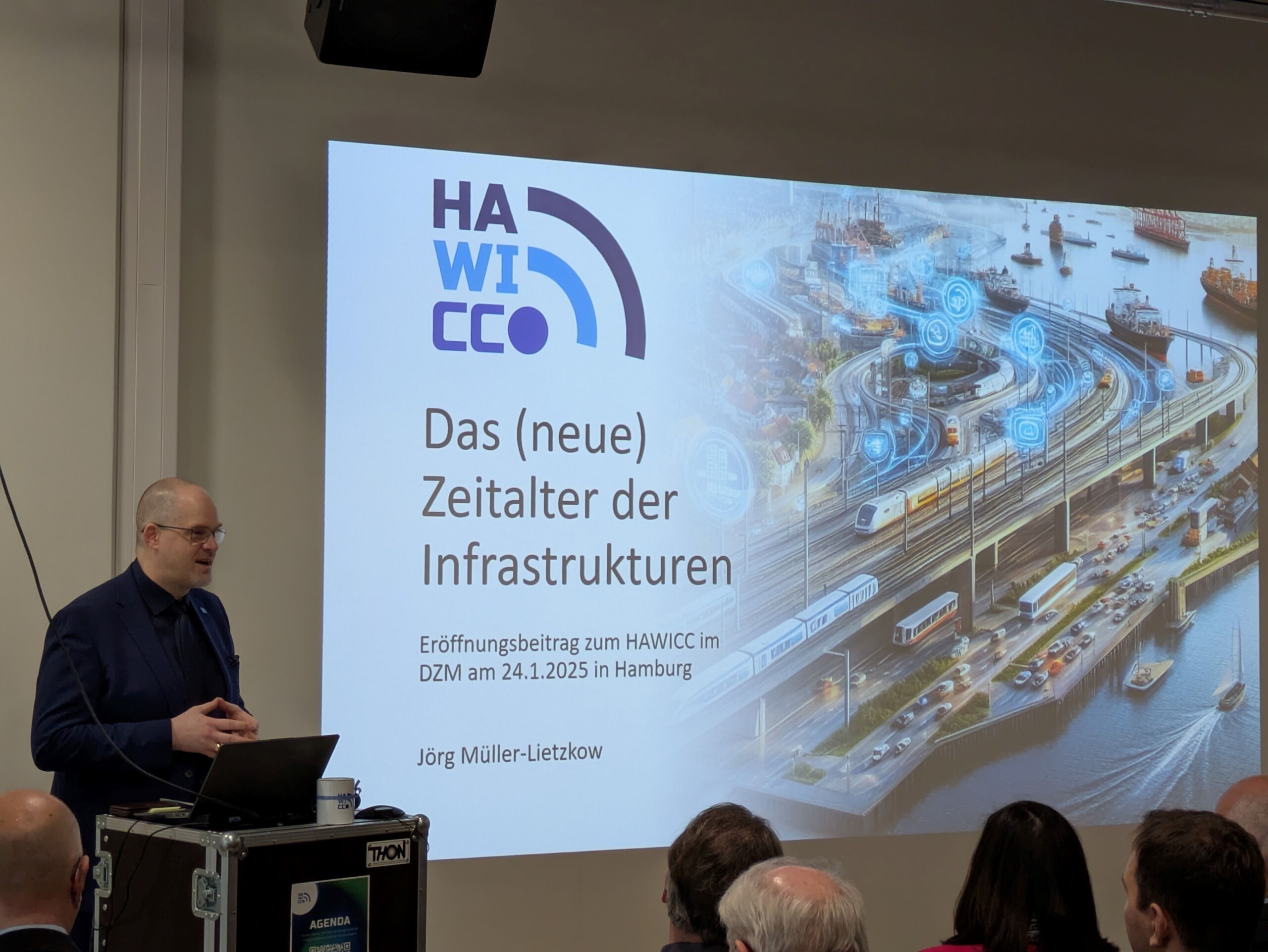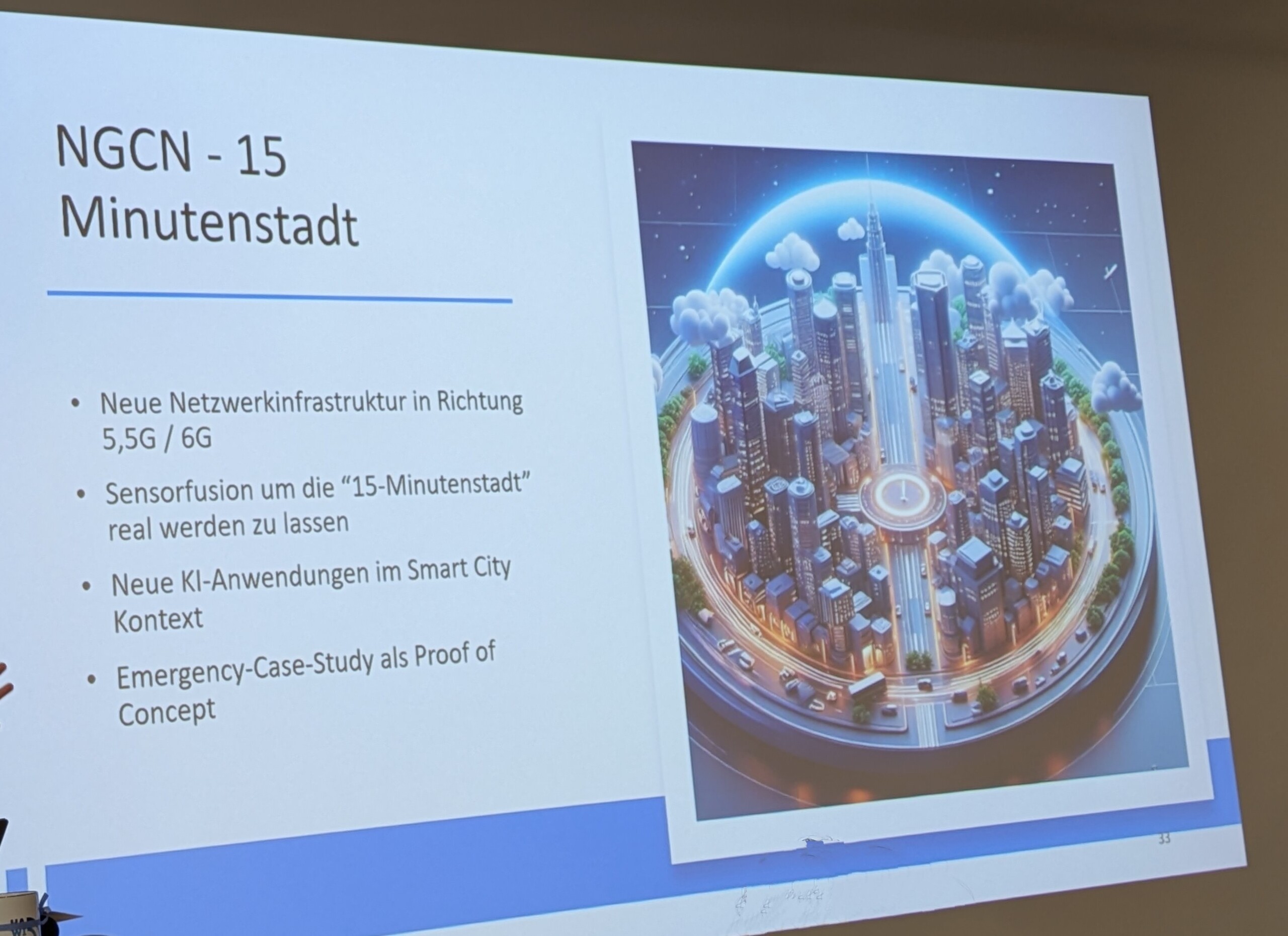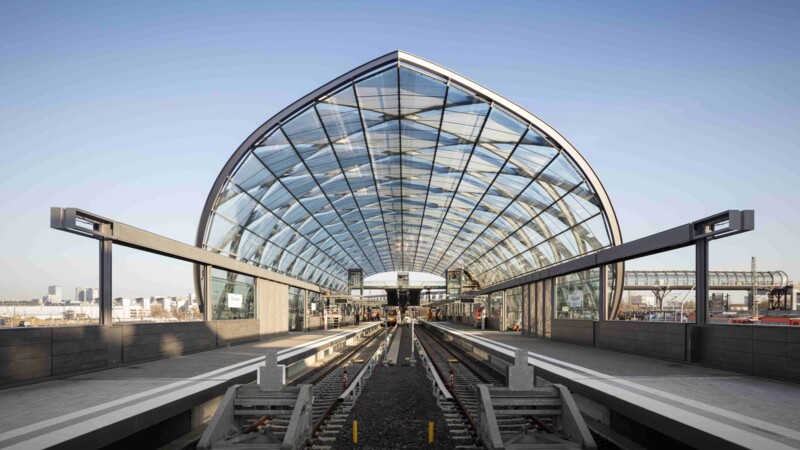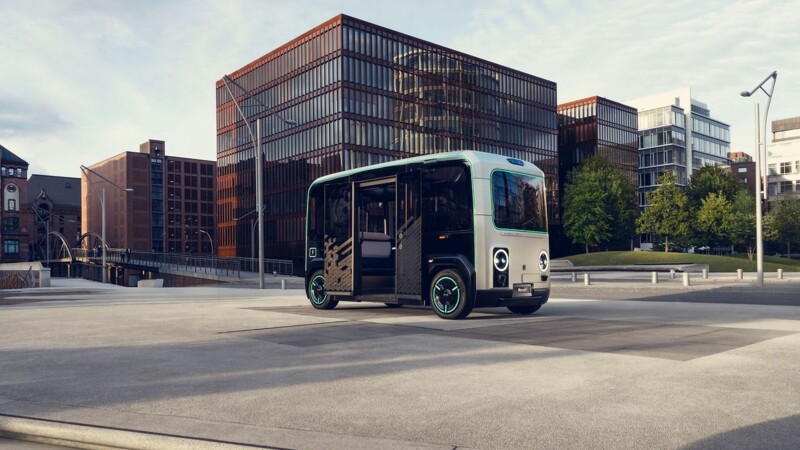The Björn Steiger Foundation has improved emergency aid and rescue services in Germany since 1969 making the foundation an ideal partner. Yet, NGCN involves far more than tragic use cases. The interdisciplinary project involving nine professorships and faculties at Hafencity University Hamburg (HCU) and the Hamburg Univesity of Technology (TUHH) aims to achieve the 15-minute city using wireless technology and AI in partnership with industry and society. The German Ministry of Digital and Transport Affairs (BMDV) is putting EUR 18.6 million towards the project.
Emergency services are frequently unable to remotely assess an emergency situation and to determine the precise number of people involved and the severity of their injuries. Such situations usually prompt the rescue co-ordination centre to send more emergency services than too few to the scene of an accident in e.g., in Hamburg-Neustadt. This is where a drone could provide information and save valuable rescue workers. Commenting on the "emergency" use case as part of the Next Generation City Networking (NGCN) project, Joachim von Beesten, Managing Director of the Björn Steiger Foundation, said: "We are planning a drone hangar in Hamburg from where drones with cameras or sensors can take off to detect hazardous substances and to better assess a situation before the emergency services arrive. We are developing a digital twin to optimise the routes of emergency vehicles in Hamburg's dense traffic." Minutes can sometimes make the difference between life and death.
Achivieng 15-minute interval in city

EUR 24.5 million for HAWICC
NGCN, underway until December 2027, is one of two nationwide pilot projects being carried out via "HAWICC", which was presented at the HCU on January 24. Thanks to HAWIC, Hamburg is now one of four places in Germany where the German Centre for Future Mobility (DZM) is researching digital innovations for sustainable mobility. The second project, "Smart Building Systems through Recombination of Materials and Wireless Technologies" (SBMUW), underway until December 2026, focuses on using sensor technology to detect damaged concrete and asphalt early. The data collected can then be used to develop AI models that predict optimal maintenance periods and improves the service life of bridges and roads in the long-term. Approximately EUR 5.9 million has been allocated to SBMUW, bringing the total funding for HAWICC to EUR 24.5 million.

6G standard
"The aim of HAWICC is to bring together exceptional expertise, select new approaches and have an impact on society," said Professor Joerg Mueller-Lietzkow, President of HCU. Wireless communication is at the heart of the research, with a view to 6G mobile communications, which is expected to enable significantly faster data transmission, be more reliable and robust, and ease the integration of AI and machine learning. 6G is expected to be introduced in 2030, but the impact of the HAWICC projects is likely to be tangible sooner.
Transfer from science to society
The transfer from science to society is key to improving the standard of living in smart cities and making Germany more competitive on a global scale, Müller-Lietzkow stressed, adding: "We want to digitalise the infrastructure and then develop further concepts." His research focuses on the digital economy, smart cities, startups in the digital sector, networks and digital policy. "The aim is to develop innovations in Germany that make a high value contribution to digital sovereignty in the medium term, have an economic impact and help develop new, sustainable and resource-saving concepts for mobility in future."
ys/pb
Sources and further information
More
Similar articles

Hamburg gets Germany's first fully digitalised S-Bahn network


